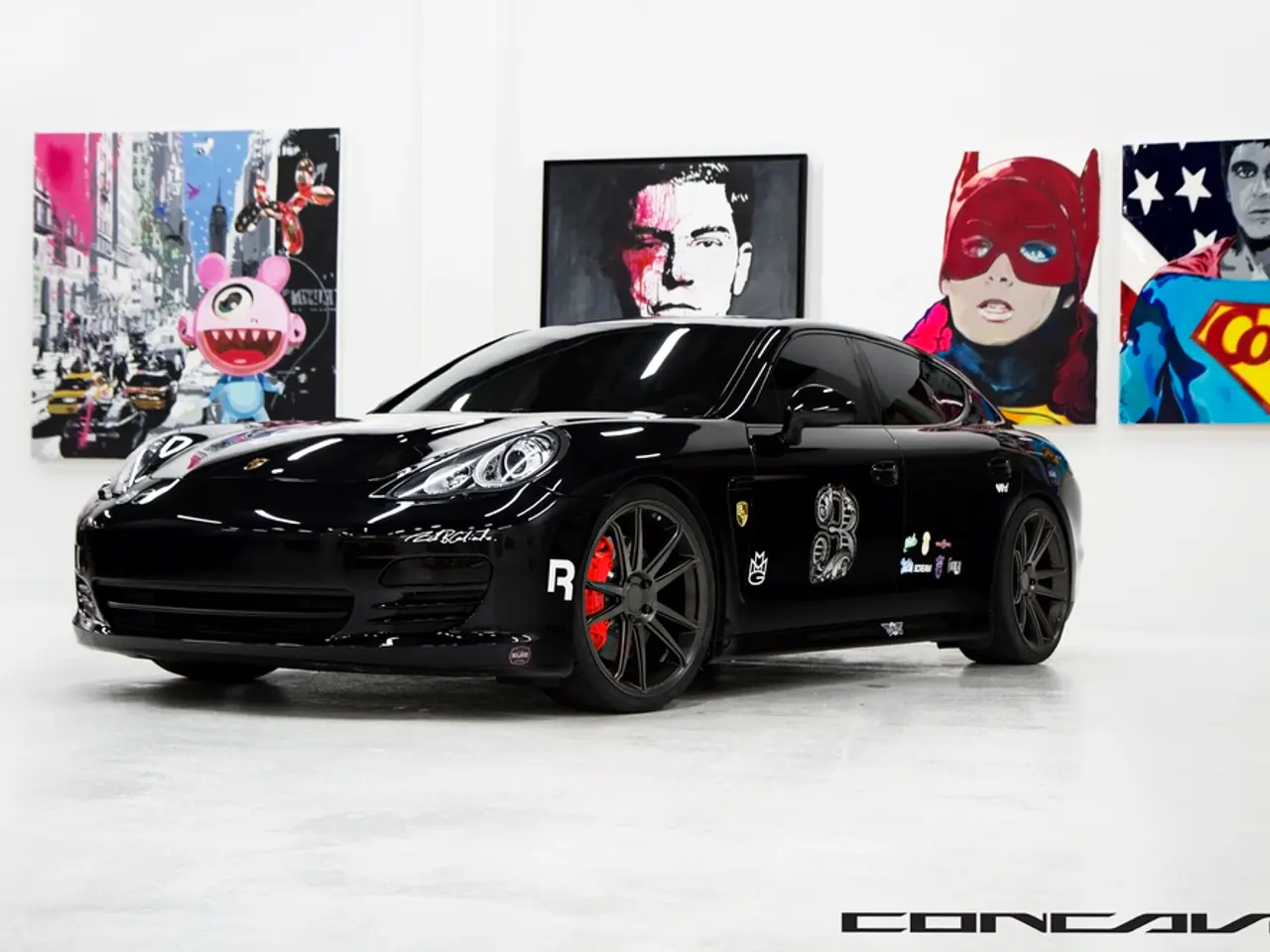Toyota Prioritizes Enjoyable Electric Vehicle Driving Experience in New Offerings
Toyota Unveils Next-Generation BEVs at Electrification Workshop
Toyota showcased its next-generation battery electric vehicles (BEVs) at a recent workshop, demonstrating the automaker's commitment to creating desirable cars that are both technologically advanced and reliable.
The event, organised under Toyota's focus on electrification, intelligence, and diversification, featured a range of cutting-edge technologies that are set to revolutionise the automotive industry.
Setting Toyota's BEVs Apart
Toyota's next-generation BEVs are distinguished by their focus on durable, reliable vehicle design combined with advanced battery innovation. Unlike many battery-makers and tech startups, Toyota is not solely focused on battery technology or software-first approaches.
The new BEVs are characterised by pioneering battery technology, such as a solid-state battery with a potential range of 1,200 miles and a 5-minute charging time. This groundbreaking technology aims to end charging anxiety and significantly improve range.
Toyota also emphasises proven reliability and thorough testing, reflecting its historical focus on durable hybrid and fuel-cell technology before fully embracing BEVs. The company is integrating new battery chemistries like bi-polar nickel metal-hydride (NiMH) and improving lithium-ion to reduce costs while doubling output density.
A Balanced Approach
Toyota is taking a multi-technology strategy, balancing BEVs with hybrids and other powertrains to achieve carbon neutrality by 2050. This approach is in contrast to many battery-makers and startups, who often prioritise rapid innovation in battery chemistry and energy density, sometimes without the same scale vehicle integration experience.
A Glimpse into the Future
The workshop also showcased a compact eAxle currently in development. This innovative technology combines motor, gear train, and inverter components, making it smaller than the motor of a hybrid vehicle. The compact eAxle project, which utilises technologies from BluE Nexus, a venture funded by Aisin, Denso, and Toyota, lowers the cargo area floor by 70 mm, freeing up 50 liters of additional interior space.
The event also featured a Lexus RZ with "steer-by-wire" technology, offering a more intuitive driving experience and possibilities for new mobility innovations. The steering wheel in the Lexus RZ can be positioned more freely due to the lack of mechanical connections.
A Commitment to Emotional Attachment
Toyota's Executive Vice President Hiroki Nakajima, also the Chief Technology Officer, has pledged to release next-generation BEVs in 2026 that will be entirely different from current models. Nakajima believes that BEVs created by carmakers should inspire emotional attachments, as cars are the only industrial products considered "beloved."
The workshop was a part of Toyota's efforts to prevent BEVs from becoming commodities. One of the technologies unveiled at the event was a manual BEV, which reproduces the feel of a manual transmission through motor control.
The event took place in June, marking a significant step forward in Toyota's commitment to electrification and the creation of desirable, reliable, and technologically advanced BEVs. The series of articles will delve into several such technologies, grouped by the three main themes, starting with Toyota's commitment to "BEVs created by carmakers."
[1] Toyota Next-Generation BEVs to Feature Solid-State Battery Technology. (n.d.). Retrieved from https://www.toyota-global.com/newsroom/stories/toyota-next-generation-bevs-to-feature-solid-state-battery-technology/
[2] Toyota's Next-Generation BEVs: What Sets Them Apart. (n.d.). Retrieved from https://www.toyota-global.com/newsroom/stories/toyotas-next-generation-bevs-what-sets-them-apart/
[3] Toyota's Next-Generation BEVs: A Focus on Reliability and Proven Technology. (n.d.). Retrieved from https://www.toyota-global.com/newsroom/stories/toyotas-next-generation-bevs-a-focus-on-reliability-and-proven-technology/
[4] Toyota's Compact eAxle: A Game Changer in BEV Technology. (n.d.). Retrieved from https://www.toyota-global.com/newsroom/stories/toyotas-compact-eaxle-a-game-changer-in-bev-technology/
[5] Toyota's Multi-Technology Strategy: Achieving Carbon Neutrality by 2050. (n.d.). Retrieved from https://www.toyota-global.com/newsroom/stories/toyotas-multi-technology-strategy-achieving-carbon-neutrality-by-2050/
- Toyota's next-generation BEVs feature innovative solid-state battery technology, potentially offering a range of 1,200 miles and a 5-minute charging time, setting them apart from many vehicles in the market.
- Unlike some battery-makers and tech startups solely focusing on battery technology, Toyota balances reliability and proven technology with advanced battery innovations to create desirable cars that adhere to the automotive industry standards.
- Toyota is investing in various powertrains like BEVs, hybrids, and others, aiming to achieve carbon neutrality by 2050 while ensuring technological advancement and reliable performance in the automotive and finance sectors.
- In addition to technology developments, Toyota is also emphasizing emotional attachment with its BEVs, fully acknowledging that cars—an integral part of our lives and lifestyle—are the only industrial products considered "beloved."




